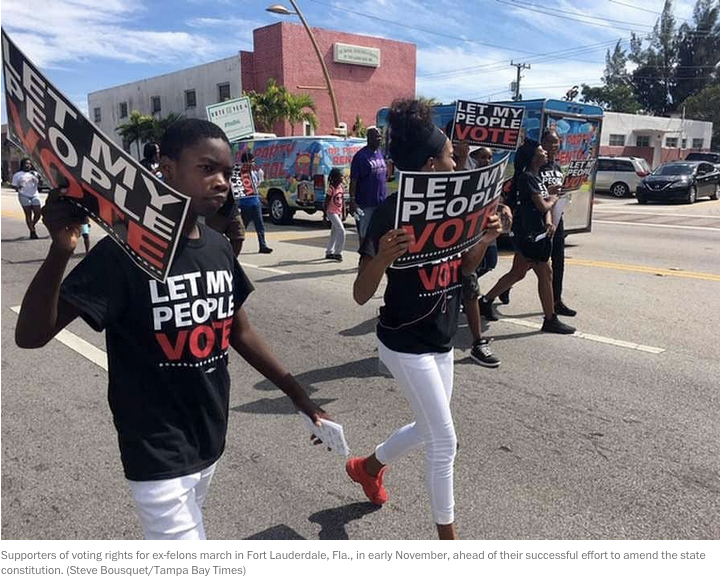SARASOTA — One of the largest enfranchisements of U.S. citizens in the past century begins Tuesday in Florida, and many of the more than 1.4 million ex-felons set to regain their voting rights here are treating the moment as a celebration.
In Tampa, one group is renting buses to register en masse at the county elections office. Others will be live-streaming on Facebook as they march in. Demetrius Jifunza, convicted as a teen of armed robbery, is now a father and pastor who wants to make his daughters proud.
“It’ll be a joyous day,” Jifunza said of the trip to the Sarasota County Supervisor of Elections office, a journey made possible when voters in November overturned Florida’s 1868 ban blocking residents with felony convictions from automatically having their voting rights restored once they served their sentences.
In the run-up to Tuesday, the organizations and volunteers who worked for the past decade to pass the amendment to the state constitution have been ramping up their efforts to encourage ex-felons to quickly follow through. There’s a toll-free number, 877-MY-VOTE-0, and a website with tips.
“We’re kicking this into a higher gear now,” said Neil Volz, political director of the bipartisan Florida Rights Restoration Coalition. Pro-bono attorneys will be on call in case problems crop up in the coming weeks.
At a strategy meeting in Sarasota in December, a small group of returning citizens — the term many people prefer over ex-felon — hashed out ideas on getting people motivated. It was one of more than a dozen such meetings across the state held by coalition members, which were made more urgent after some lawmakers suggested that Amendment 4 should not take effect until the legislature can review it.




